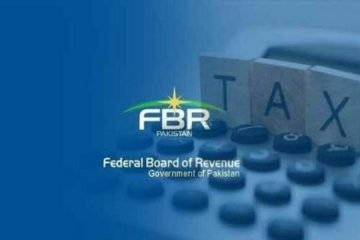Taxation is an important part of any country’s economic system. It is the primary source of revenue for governments to fund public services, infrastructure, and social welfare programs. In Pakistan, taxation plays a critical role in generating revenue and supporting the country’s economic development. This article will explore the impact of taxation on the Pakistani economy, including its benefits, challenges, and opportunities.
Benefits of Taxation in Pakistan:
Taxation plays a vital role in promoting economic growth and development in Pakistan. The primary benefits of taxation in Pakistan are:
- Revenue Generation:
Taxation is the primary source of revenue for the government of Pakistan. It helps to finance public services, infrastructure development, and social welfare programs. With a well-designed tax system, the government can generate enough revenue to meet the country’s needs and promote sustainable economic growth.
- Fiscal Stability:
Taxation also helps to maintain fiscal stability in Pakistan. It enables the government to manage the country’s finances effectively and avoid budget deficits. Through taxation, the government can control inflation, manage public debt, and promote economic stability.
- Encouraging Investment:
Taxation policies can also encourage investment in Pakistan. By providing tax incentives to businesses and investors, the government can attract local and foreign investment, create jobs, and promote economic growth.
Challenges of Taxation in Pakistan:
Despite the benefits of taxation, Pakistan faces several challenges in implementing an effective tax system. The primary challenges include:
- Tax Evasion:
Tax evasion is a significant challenge in Pakistan. According to the Federal Board of Revenue (FBR), only 1.5 million people out of a population of over 200 million pay income tax. The high rate of tax evasion has led to a significant revenue gap for the government.
- Informal Economy:
Pakistan’s informal economy is a significant challenge to taxation. The informal economy includes businesses and workers that are not registered with the government or pay taxes. It is estimated that the informal economy accounts for around 30% of Pakistan’s GDP, making it difficult for the government to generate revenue through taxation.
- Complexity of Tax Laws:
Pakistan’s tax laws are complex and confusing, which makes it difficult for taxpayers to understand and comply with them. The complexity of tax laws has also created opportunities for corruption and tax evasion.
Opportunities for Taxation in Pakistan:
Despite the challenges, there are several opportunities for taxation in Pakistan. The primary opportunities include:
- Tax Reforms:
Pakistan’s government has introduced several tax reforms in recent years to improve the country’s tax system. These reforms include simplifying tax laws, improving tax administration, and reducing tax rates. The government’s efforts to reform the tax system are expected to improve revenue collection and promote economic growth.
- Digitalization:
The digitalization of Pakistan’s economy presents an opportunity for taxation. The government can use technology to improve tax collection and reduce tax evasion. Digitalization can also make tax compliance easier for taxpayers, which can lead to increased revenue collection.
- International Cooperation:
International cooperation can also help improve taxation in Pakistan. The government can learn from other countries’ experiences and best practices to develop a more effective tax system. International cooperation can also help to reduce tax evasion by promoting transparency and information sharing.
Conclusion:
In conclusion, taxation is an essential part of Pakistan’s economic system. It plays a vital role in generating revenue, promoting economic growth, and supporting social welfare programs. Despite the challenges, there are several opportunities for taxation in Pakistan, including tax reforms, digitalization, and international cooperation. By addressing the challenges and seizing the opportunities, Pakistan can develop an effective and efficient tax system that supports its economic development.




